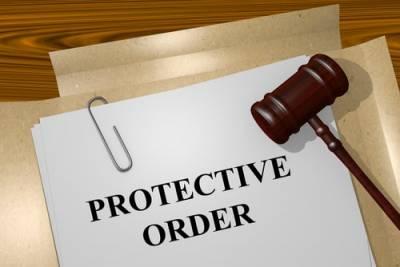 Free consultation
Free consultation630-953-3000
Your Voice Matters
Spousal maintenance (also referred to as spousal support or alimony) is a payment made from one ex-spouse to another during or after the finalization of a divorce, dissolution of a civil union, or legal separation. When determining if an individual is entitled to financial assistance, a court will consider many different factors and circumstances, including each spouse’s income and property, the needs of each party, any involved impairments, and the length of the marriage. If you are seeking monetary payments from an ex-spouse, or if you are looking to contest a spousal support request, it is highly recommended to discuss your specific situation with a skilled alimony attorney.
In the state of Illinois, there are four primary designations of spousal maintenance that are available:
Temporary maintenance is available to an ex-spouse if he or she is in need of monetary support while their case is pending. In many situations, temporary maintenance is designed to help individuals with their short-term financial needs, such as monthly bills or living arrangements. Once the case is finalized, however, the temporary maintenance will come to an end.
 In the state of Illinois, retail theft is committed when an individual knowingly takes an item from a retail establishment without proper payment or authorization. While there are many different types of retail theft, shoplifting is arguably the most common. In any scenario involving retail theft, the evidence surrounding the case could be your best defense. If you have been detained by a store employee who has accused you of retail theft, it is imperative to seek the guidance of an experienced criminal defense attorney.
In the state of Illinois, retail theft is committed when an individual knowingly takes an item from a retail establishment without proper payment or authorization. While there are many different types of retail theft, shoplifting is arguably the most common. In any scenario involving retail theft, the evidence surrounding the case could be your best defense. If you have been detained by a store employee who has accused you of retail theft, it is imperative to seek the guidance of an experienced criminal defense attorney.
According to section 720 ILCS 5/16-26, any merchant with a reasonable belief that an individual has committed retail theft may apprehend the suspected person. The detention may take place on or off the property of the retail establishment and must be in a reasonable manner and length of time. It is important to note that detention may only take place off of the retail establishment if there is an immediate pursuit of the suspected individual. A merchant may detain a suspected shoplifter for the following reasons:
 Domestic violence can occur in a variety of different ways, including but not limited to physical and verbal abuse, threats, stalking, and harassment. In the state of Illinois, an order of protection may be granted to help individuals who feel that they are in danger. Unfortunately, an order of protection does not always work, as the abuser may still find a way to contact the victim. In cases such as this, it is important to discuss the events of your situation with an experienced order of protection attorney.
Domestic violence can occur in a variety of different ways, including but not limited to physical and verbal abuse, threats, stalking, and harassment. In the state of Illinois, an order of protection may be granted to help individuals who feel that they are in danger. Unfortunately, an order of protection does not always work, as the abuser may still find a way to contact the victim. In cases such as this, it is important to discuss the events of your situation with an experienced order of protection attorney.
An order of protection is a document approved by the court that would make it illegal for a certain individual to engage in a certain behavior, such as contacting or coming within a certain distance of the victim. The terms of an order of protection are decided by a judge, who will make this decision based on the presented facts.
 Domestic battery charges in Illinois are often pursued very aggressively. Depending on the conditions of the situation, it is possible that severe charges can result. In addition to potential fines and prison time, individuals convicted of domestic battery may also see changes to their parental rights. If you have been charged with domestic battery, it is important to work with an experienced criminal defense attorney in order to protect your rights.
Domestic battery charges in Illinois are often pursued very aggressively. Depending on the conditions of the situation, it is possible that severe charges can result. In addition to potential fines and prison time, individuals convicted of domestic battery may also see changes to their parental rights. If you have been charged with domestic battery, it is important to work with an experienced criminal defense attorney in order to protect your rights.
Domestic battery offenses affect a wide scale of families every year. In the state of Illinois, an individual commits domestic battery if he or she knowingly without legal justification:
 It is not uncommon for grandparents to play an active role in the lives of not only their children, but also their grandchildren. This can create complications, however, when relationships between a child’s parents sour, in which case, grandparents could find themselves barred from seeing their grandchildren. Recognizing that the grandparent-grandchild relationship can have significant repercussions on a child, Illinois courts are willing to address grandparent visitation during custody proceedings. These kinds of proceedings do, however, require familiarity with specific aspects of Illinois law, so if you are seeking visitation with your grandchild or believe that visitation would not be in your child’s best interests, it is important to speak with an experienced Naperville, IL grandparents’ rights attorney who can walk you through your legal options.
It is not uncommon for grandparents to play an active role in the lives of not only their children, but also their grandchildren. This can create complications, however, when relationships between a child’s parents sour, in which case, grandparents could find themselves barred from seeing their grandchildren. Recognizing that the grandparent-grandchild relationship can have significant repercussions on a child, Illinois courts are willing to address grandparent visitation during custody proceedings. These kinds of proceedings do, however, require familiarity with specific aspects of Illinois law, so if you are seeking visitation with your grandchild or believe that visitation would not be in your child’s best interests, it is important to speak with an experienced Naperville, IL grandparents’ rights attorney who can walk you through your legal options.
Parents have certain rights when it comes to their children. In most cases, courts are not allowed to interfere with these rights unless a child is being harmed. There are exceptions, however, to this general rule, in which case a court could be willing to step in and order visitation with a child’s grandparents. This is only an option when the grandparent in question is able to demonstrate that visitation is in a child’s best interests.
 Besides being emotionally draining, getting divorced can take a significant toll on a couple’s finances. Fortunately, there are steps that divorcing parties can take to reduce their post-divorce finance-related concerns. Most couples are, for instance, urged to immediately begin accounting for their assets and expenses, both to ensure that any property settlements are fair, but also to help uncover any evidence of marital waste or fraud on the part of one of the spouses. To learn more about the financial aspects of divorce, please reach out to one of our experienced DuPage County divorce lawyers today.
Besides being emotionally draining, getting divorced can take a significant toll on a couple’s finances. Fortunately, there are steps that divorcing parties can take to reduce their post-divorce finance-related concerns. Most couples are, for instance, urged to immediately begin accounting for their assets and expenses, both to ensure that any property settlements are fair, but also to help uncover any evidence of marital waste or fraud on the part of one of the spouses. To learn more about the financial aspects of divorce, please reach out to one of our experienced DuPage County divorce lawyers today.
Property division is one of the most difficult aspects of many divorces, especially for couples who have unique or valuable assets. One of the best ways to avoid an unfair property settlement and later financial stress (upon divorce) is for couples to start compiling their financial information, including all bank, retirement, and investment accounts. The parties should be sure to keep copies of important documentation, like bank statements that can help keep track of both individuals’ balances, regular deposits, and withdrawals. Re-inventorying these accounts regularly during divorce proceedings is also a good idea and can go a long way towards safeguarding assets and preventing marital waste.
 Many couples breathe a sigh of relief upon the finalization of their divorces, believing that their legal problems are now over. This, however, is not always the case, especially for couples who share custody of a child. In fact, it is more likely than not that a family will eventually need to re-address their parenting plan to account for a change in circumstances, like a new job, or even just a child’s changing needs. These changes must, however, be accompanied by compliance with specific steps, especially if one or both of a child’s parents want to relocate. For help ensuring that your own child’s best interests are protected during a potential relocation, please call our experienced Naperville, IL child custody and parental responsibility lawyers today.
Many couples breathe a sigh of relief upon the finalization of their divorces, believing that their legal problems are now over. This, however, is not always the case, especially for couples who share custody of a child. In fact, it is more likely than not that a family will eventually need to re-address their parenting plan to account for a change in circumstances, like a new job, or even just a child’s changing needs. These changes must, however, be accompanied by compliance with specific steps, especially if one or both of a child’s parents want to relocate. For help ensuring that your own child’s best interests are protected during a potential relocation, please call our experienced Naperville, IL child custody and parental responsibility lawyers today.
Parents who share parenting time equally, or who have been allocated the majority of parenting time can attempt to relocate with their child, but must abide by certain rules. The parent who wishes to relocate must, for instance, give written notice at least 60 days before the move to the child’s other parent and must also submit that notice to the circuit court. These notices must contain certain information, including:
 The charges a person will face when they are accused of driving under the influence will largely depend on their prior criminal record. Specifically, any prior DUI convictions the accused has on their record will be considered. However, the courts will only look back on a certain period of time when determining the sentence for someone convicted of a DUI. This is known as the lookback period.
The charges a person will face when they are accused of driving under the influence will largely depend on their prior criminal record. Specifically, any prior DUI convictions the accused has on their record will be considered. However, the courts will only look back on a certain period of time when determining the sentence for someone convicted of a DUI. This is known as the lookback period.
Typical time frames for loopback periods in other states are five to ten years, and when a person has a DUI conviction that occurred before that period, the court will not consider it. So, does Illinois place a lookback period on DUI cases?
Unfortunately, Illinois does not place a lookback period on DUI cases. This means that when a person is convicted of driving under the influence, that conviction will remain on their driving record, which is permanent. It also means that the prosecution can charge a subsequent DUI and sentence a person to harsher penalties even when the prior DUI happened more than 10 years ago.
 Divorces that involve children have many more complex issues than cases that do not. It is natural for parents to first become concerned with child custody issues, but child support is another contentious issue that must be addressed. Divorce is already an expensive process which is made even more costly when one spouse learns they will have to pay child support. Some people may want to avoid paying child support so much that they take drastic measures such as quitting their job. In these cases, their former spouse is typically left wondering if that is even allowed.
Divorces that involve children have many more complex issues than cases that do not. It is natural for parents to first become concerned with child custody issues, but child support is another contentious issue that must be addressed. Divorce is already an expensive process which is made even more costly when one spouse learns they will have to pay child support. Some people may want to avoid paying child support so much that they take drastic measures such as quitting their job. In these cases, their former spouse is typically left wondering if that is even allowed.
While no one can force someone to go to work every day, there are measures you can take if your former spouse is refusing to pay child support. A Naperville family lawyer can help ensure you receive the payments you are owed.
Illinois law states that all parents must support their children financially until they turn 18 years old or graduate from high school. Parents have this legal obligation regardless of whether or not they are married. When two people get a divorce and they have children together, that financial obligation is usually met through child support. The non-custodial parent is responsible for making payments to the custodial parent to provide financial support for their daily expenses, as well as their educational and medical expenses.
 If you have received a traffic ticket for failing to stop at a stop sign or speeding, you may think it is easiest to simply check the ‘guilty’ box on the back of the ticket and pay the fine. However, even if the traffic violation will not result in a conviction on your driving record, you should not immediately concede that you are guilty. There are many ways a DuPage County criminal defense lawyer can help you fight the traffic ticket, and you will realize many benefits when working with one.
If you have received a traffic ticket for failing to stop at a stop sign or speeding, you may think it is easiest to simply check the ‘guilty’ box on the back of the ticket and pay the fine. However, even if the traffic violation will not result in a conviction on your driving record, you should not immediately concede that you are guilty. There are many ways a DuPage County criminal defense lawyer can help you fight the traffic ticket, and you will realize many benefits when working with one.
While a traffic violation may seem like a minor offense, there are times when one could result in very high fines and possibly even jail time. For example, if you are charged with driving 26 to 34 miles per hour over the speed limit, you will face a Class B misdemeanor charge. This type of offense is punishable by a maximum of 180 days in jail and a fine up to $1,500. If you are accused of speeding more than 35 miles per hour over the speed limit, the charge is upgraded to a Class A misdemeanor. This offense is much more serious and carries a sentence of up to one year in jail and a fine of $2,500.

 630-953-3000
630-953-3000 1700 Park St., Suite 203F, Naperville, IL 60563
1700 Park St., Suite 203F, Naperville, IL 60563 Evenings and Weekends by Appointment
Evenings and Weekends by Appointment